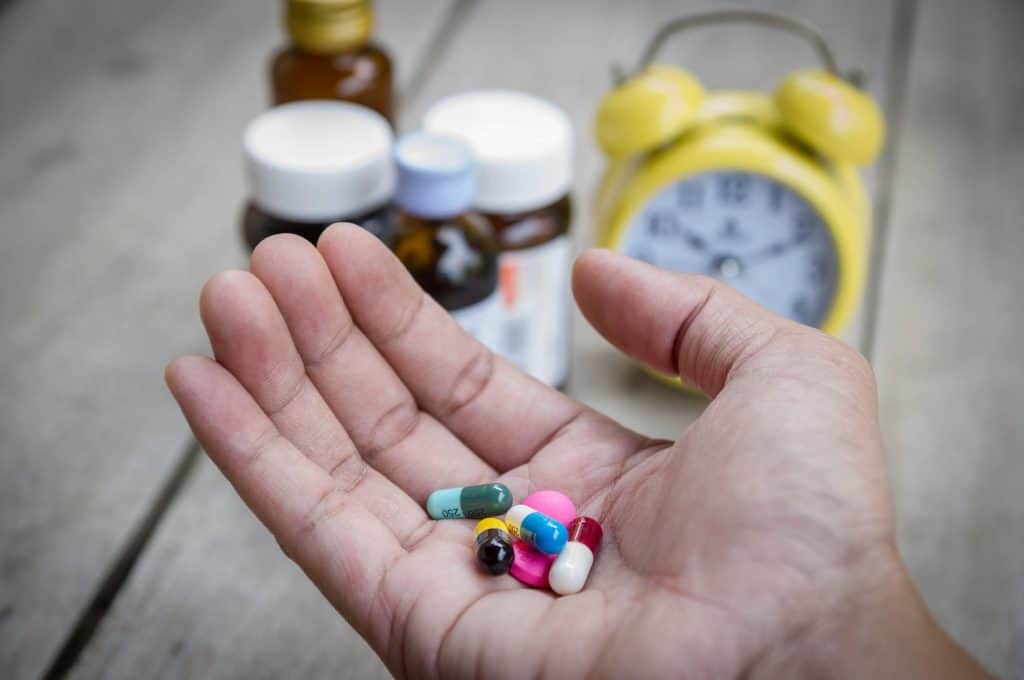When Can You Stop Taking Your Medication? – What You Should Know
Posted by Prescription Hope - See Editorial Guidelines (Last Updated On: Mon Jul 06 2020)
It is estimated that more than half of the American population take prescription medications. Many of these drugs include antidepressants, pain killers, blood pressure pills, and so on. So, is there a time in which you can stop taking your medications? Some prescription drugs can be stopped once you feel better, but others have to be taken for the full time prescribed. And of course, some medications, such as insulin, have to be taken for your lifetime. Here is a quick summary before getting into specific details. When Can You Stop Taking Your Medication? There are certain types of drugs, that if they are stopped suddenly, may result in withdrawal symptoms and an increased risk of serious complications. These medicines may include blood pressure pills, depression and anxiety medicines, pain meds, and drugs containing specific ingredients. The strength of dose and how long you have been on the medication will affect how long it will take for you to stop taking the med. Here is everything that you should know when it comes to stopping your medication.
Why People Stop Taking Their Medication
 Many individuals ask, can I stop taking my medication? The reason that many ask this question is that many prescription drugs are expensive. So, they may have a high out-of-pocket cost and do not want to spend more than what they need on this medication.
Others may dislike the side effects of the drug they’ve been prescribed, and there isn’t any alternative. However, the benefit of the drug outweighs the risk of side effects. So, the patient is stuck taking a medicine and has to deal with side effects.
In many cases, individuals will stop taking their prescribed drugs as soon as they feel better. Why would you continue to take a drug when you feel perfectly fine? This seems logical, but it can lead to an even greater setback.
Other reasons patients may stop taking their medication include that they don’t believe they need the drug or that they don’t think the medication is working. Some individuals may simply forget to take their medicine each day, leading to them to gradually stopping their medication altogether.
Many individuals ask, can I stop taking my medication? The reason that many ask this question is that many prescription drugs are expensive. So, they may have a high out-of-pocket cost and do not want to spend more than what they need on this medication.
Others may dislike the side effects of the drug they’ve been prescribed, and there isn’t any alternative. However, the benefit of the drug outweighs the risk of side effects. So, the patient is stuck taking a medicine and has to deal with side effects.
In many cases, individuals will stop taking their prescribed drugs as soon as they feel better. Why would you continue to take a drug when you feel perfectly fine? This seems logical, but it can lead to an even greater setback.
Other reasons patients may stop taking their medication include that they don’t believe they need the drug or that they don’t think the medication is working. Some individuals may simply forget to take their medicine each day, leading to them to gradually stopping their medication altogether.
What Meds Should Not Be Stopped Abruptly
The following is a list of medications that should never be suddenly stopped unless specified by your doctor. If you are concerned about the side effects or cost, then talk to your doctor about a potential alternative treatment.Blood Pressure Meds
Blood pressure medications are also often called beta-blockers. These drugs are used to slow the rate and lower the force of the heartbeat when individuals have high blood pressure. Suddenly stopping your blood pressure medication may result in an increased heart rate and a rise in blood pressure. This may put you at a greater risk for heart attack.Blood Thinners
Blood thinners are prescribed to individuals that are at risk for blood clots. These drugs keep blood flowing through veins and arteries smoothly. Those that suddenly stop taking their blood thinner medication are at an increased risk for having a stroke caused by a blood clot.Anti-Anxiety Meds
Anti-anxiety medications include brand-name drugs, such as Xanax and Valium. These meds may provide quick relief from anxiety, but a dependence may develop with long-term use. Therefore, stopping these medications suddenly may lead to withdrawal symptoms and may even put a person at risk for a seizure.Antidepressants
Antidepressants, used to treat individuals with depression, should not be stopped suddenly. Individuals that stop taking antidepressants abruptly may suffer from withdrawal symptoms such as headache, nausea, and other adverse reactions. If a patient on antidepressants begins to feel better and feels as if they do not need the med, then the doctor may decide to reduce the dose gradually.Steroids
Steroids may be prescribed to help individuals fight off acute infections. When the body recognizes that it is getting steroids from an outside source, it may stop or significantly reduce its natural production of steroids. If a patient abruptly stops taking steroids, especially if they have been on them for some time, it may take multiple days and weeks before the body begins its natural production of cortisol again. This may result in adverse reactions.Opioid Painkillers
Opioids are commonly prescribed painkillers, but they can cause severe withdrawal symptoms if the patient stops taking the medication suddenly. The withdrawal symptoms may be more serious if the patient has been prescribed a stronger dose or has been using them for a long period. Doctors should help you gradually quit the use of opioids, rather than going cold turkey. Meds for Chronic Conditions
Meds for Chronic Conditions
You should not stop taking medications for any chronic condition for obvious reasons. There are many chronic health conditions, such as diabetes, glaucoma, asthma, and cystic fibrosis, that require long-term treatments. If an individual stops using eye drops for glaucoma or stops taking insulin for diabetes, then they’re condition may become significantly worse and debilitating.
Anticonvulsants
Anticonvulsants, such as Dilantin, are medications that are used to prevent seizures and treat epilepsy. If a patient suddenly stops taking this medication, they may experience an increased risk of seizures. This increased risk of seizures may include a condition known as status epilepticus. This is when seizures follow one another without the individual regaining consciousness.Thyroid Meds
A patient that has a thyroid disorder and is on thyroid medications should not stop taking their medication suddenly. When you stop taking your thyroid medication abruptly, you may be at risk for a life-threatening condition known as thyroid storm. This may lead to an individual having a rapid heartbeat, increased blood pressure, and dangerously high fever.Why You Shouldn’t Stop Taking Your Medication
There are a few reasons as to why you shouldn’t stop taking your medication suddenly. You should follow your doctor’s instructions to limit your risk of any adverse reactions. Here are the main reasons you should avoid abruptly stopping your medicine.The Rebound Effect
The rebound effect is when the symptoms of a medical condition reappear after the medication for treating the condition is stopped. In cases where patients stop taking their medication too soon because they felt better, their condition may come back. Depending on the condition being treated, it may come back even worse than what it was before. This is why many doctors will prescribe a medication to be taken for a certain length of time.Withdrawal
Withdrawal symptoms occur when a person develops a dependence on a drug. The symptoms can range from a variety of things, from minor headaches and nausea to seizures. If you have recently stopped taking your medication and are experiencing unusual anxiety, fatigue, depression, sweating, seizures, or hallucinations, then you may be having withdrawal symptoms. Withdrawal symptoms may be minor, annoying symptoms, or life-threatening in severe cases.Can I Stop Taking My Medication If I Feel Better?
 You should not stop taking your medication if you feel better. As mentioned above, if you stop taking your medication as soon as you feel better, you may have a rebound effect.
The condition you are treating may come back even more aggressive, making it more difficult to treat. The reason behind this is that you will not get the full effect of the medicine if you stop taking it too soon.
If you are on antibiotics or a steroid pack, then you may start to feel better within the first day or two of starting the medication. This, however, does not mean that the medication has had a chance to treat the condition adequately.
You should not stop taking your medication if you feel better. As mentioned above, if you stop taking your medication as soon as you feel better, you may have a rebound effect.
The condition you are treating may come back even more aggressive, making it more difficult to treat. The reason behind this is that you will not get the full effect of the medicine if you stop taking it too soon.
If you are on antibiotics or a steroid pack, then you may start to feel better within the first day or two of starting the medication. This, however, does not mean that the medication has had a chance to treat the condition adequately.

